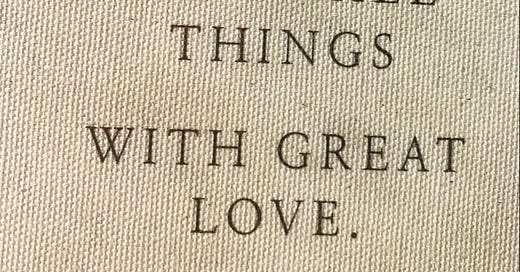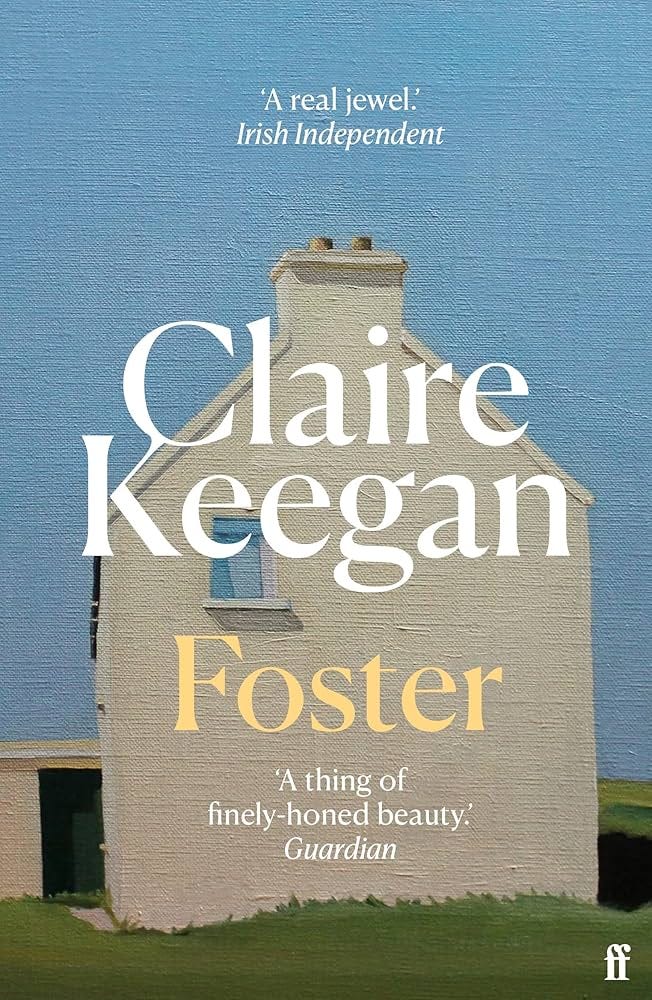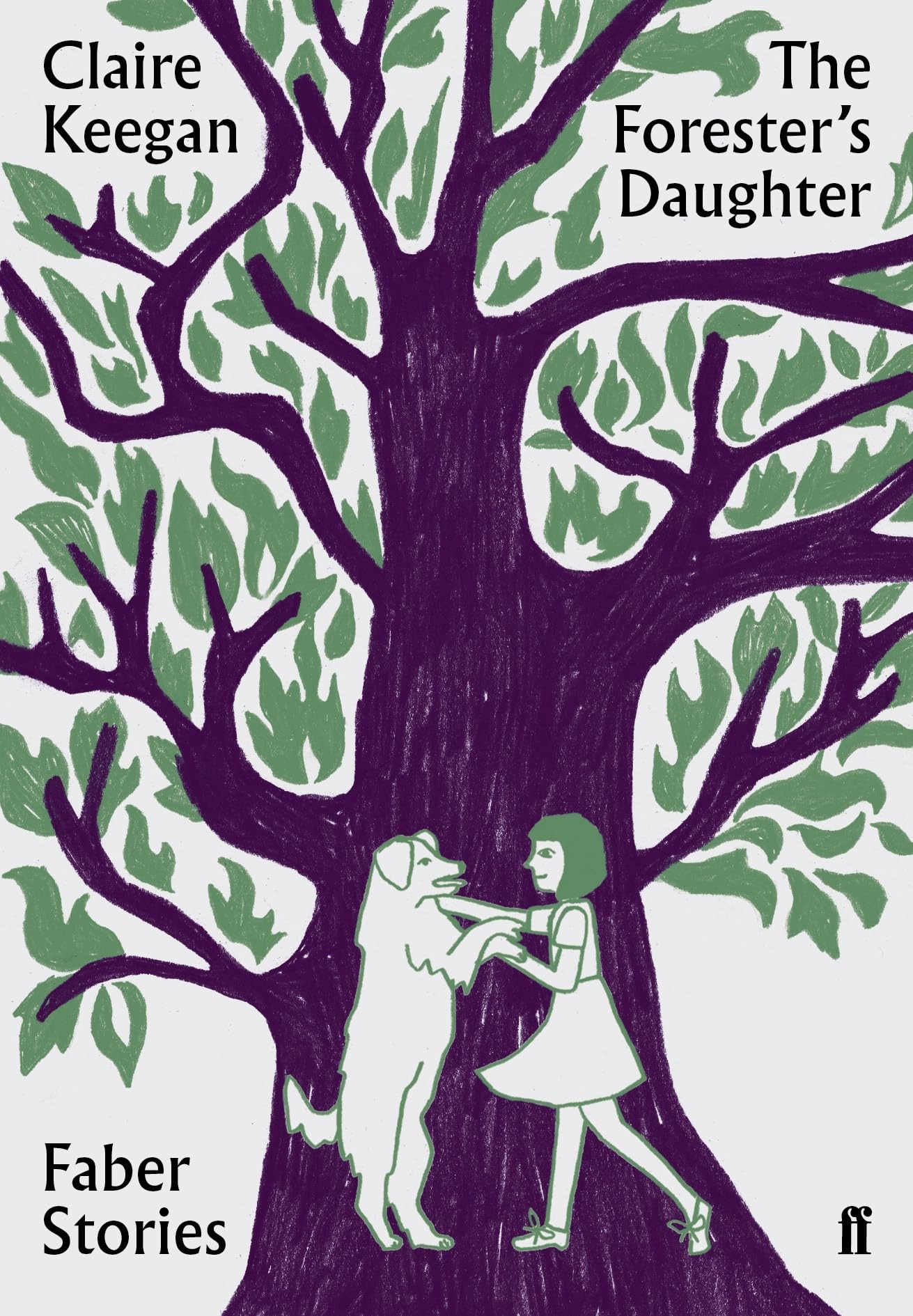At the end of 2024, Irish Literature piqued my curiosity, and I decided to dedicate more of my time to it in 2025. It happened when I saw a poster of the movie Small Things Like These in the metro, with the indication: “Based on the best-selling novel by Claire Keegan”.
I’m not a cinephile. While I enjoy watching movies, I don’t know my classics, get bored watching most of them, and prefer to spend my time doing other things. I also procrastinate even when I want to rewatch a movie or a series I love. So, when I discovered that this movie, which mainly appealed to me because of Cillian Murphy, was an adaptation of a book, I thought, “I need to read this.”
When I picked up Small Things Like These, I overlooked the author's affiliation with Irish Literature. But the vivid descriptions of Ireland and the prose of Keegan made me rethink this. And I’m now diving into this genre with her works.
Claire Keegan: A Reading Guide
To me, Claire Keegan is the best author to start with Irish Literature. Her novellas and short stories offer beautiful, easy prose to discover this literature.
The following list of Keegan’s works is sorted in the order I discovered and read them. Of course, this is a personal choice, but I think I made the right choices because it allowed me to slowly delve deeper into her work, understand all its subtleties, and see her progress as a writer.
Small Things Like These
It is 1985 in a small Irish town. During the weeks leading up to Christmas, Bill Furlong, a coal merchant and family man faces into his busiest season. Early one morning, while delivering an order to the local convent, Bill makes a discovery which forces him to confront both his past and the complicit silences of a town controlled by the church.
Small Things Like These is the first and only novella by Claire Keegan that I have read. I was struck by her ability to create such vivid descriptions and convey so much in so few words. This, I would later understand, was a paradoxical thought as it is the longest story published by Claire Keegan (128 pages in the hardback version).
Published in 2021, this short story received widespread acclaim, with the Washington Post even stating: “Get two copies. One to keep, one to give." Addressing the horrors of the Magdalen laundries and the complicity of the Catholic Church with the Irish government in this abusive system, Small Things Like These is a beautifully written historical novella that highlights the quiet heroism and the love of a father for his family, as well as his empathy for others.
So Late in the Day
After an uneventful Friday at the Dublin office, Cathal faces into the long weekend and takes the bus home. There, his mind agitates over a woman named Sabine with whom he could have spent his life, had he acted differently. All evening, with only the television and a bottle of champagne for company, thoughts of this woman and others intrude - and the true significance of this particular date is revealed.
The second work, but the first short story by Keegan that I read, So Late in the Day, enlightened me on the power of short stories. Previously, I was a novel reader, and I found it difficult to comprehend how one could tell a complete story in less than 100 pages. With this work, Claire Keegan opened my eyes, and upon finishing this book, I realised I must dedicate 2025 to reading more short stories, as they hold as much power as novels—or perhaps even more.
This is probably one of the most intelligent stories I have ever read, and Claire Keegan amazed me with her ability to convey so much in just a few words. She knew precisely what the reader needed to know and what could be left unsaid to gracefully unveil the moral of the story. Nothing is straightforward; only delicate hints are added here and there until everything becomes clear right at the end. Once again, Claire Keegan writes about important themes, with So Late in the Day focusing on inherent misogyny and sexism, and how women are expected to bear domestic burdens.
Foster
A small girl is sent to live with foster parents on a farm in rural Ireland, without knowing when she will return home. In the strangers' house, she finds a warmth and affection she has not known before and slowly begins to blossom in their care. And then a secret is revealed and suddenly, she realizes how fragile her idyll is.
Getting into Foster was a bit more challenging, and I felt apprehensive. I wondered: "Have I already experienced the best of Keegan? Is there nothing more to discover?" I was mistaken. Foster is a heart-wrenching, beautiful tale filled with silence: silences filled with love, silences filled with sadness, silences filled with understanding, and silences filled with beauty. The scenes are quite domestic, yet the prose is stunning, and the emotions are profoundly deep.
Once more, I wasn’t surprised by the historical and political aspects of this short story, although I had to read several reviews since I’m not well-versed in Ireland’s history. Discussing silence in a review of Foster is indeed pertinent, as this short story reflects the culture of silence in Ireland during The Troubles, when uttering the wrong words could lead to terrible consequences. Keegan also writes about children, who are the first victims of domestic violence, and how they can discover love and empathy in another household, even if it bears its own sorrow.
Antarctica
From the opening story about a married woman who takes a trip to the city with a single purpose in mind - to sleep with another man - Antarctica draws you into a world of obsession, betrayal and fragile relationships. In 'House Calls', Cordelia wakes on the last day of the twentieth century and sets off along the coast road to keep a date with her lover that has been nine years in the waiting. In 'The Singing Cashier', a local postman visits two sisters bearing fishy gifts in the hope that his favour will be returned in kind. One of the most moving and disturbing stories in the collection, 'Passport Soup', features Frank Corso, who sits alone eating green tomatoes and bacon, mourning the disappearance of his nine-year-old 'At one point in that late evening, she was there, and then she wasn't.' Keegan's characters inhabit a world where dreams, memory and chance can have crippling consequences for those involved. Compassionate, witty and unsettling, Antarctica is a collection to be savoured.
Probably the work of hers I liked the least, "Antarctica" is a collection of short stories named after the title story. It is Keegan’s very first collection, published in 1999, and it won several prizes.
Given what I had read before, I was slightly disappointed by this collection. You can tell it’s her very first published work. Her style isn’t as clear and distinctive as it is in "Small Things Like These" or "Foster". It lacked subtlety and felt "too well-crafted", which hindered the prose from flowing freely. Furthermore, I couldn’t find a common thread in this collection: the title "Antarctica" refers to the very first short story, but it doesn’t convey anything about the others or draw a connection among them.
Some stories stood out, like “Sisters”, yet it was either a hit or miss because they sometimes began too slowly, and/or ended too abruptly. Thus, the pacing wasn’t ideal. Nonetheless, it was still interesting to read Keegan’s early works and realise how much her writing has improved. It only confirmed my love for her most recent novellas, and I’m looking forward to new stories.
On my TBR list
I haven’t read all of Keegan’s books yet, with only two missing for now. So, please feel free to share your thoughts in the comments if you have already read them!
Walk the Blue Fields
Claire Keegan’s brilliant debut collection, Antarctica, was a Los Angeles Times Book of the Year, and earned her resounding accolades on both sides of the Atlantic. Now she has delivered her next, much-anticipated book, Walk the Blue Fields, an unforgettable array of quietly wrenching stories about despair and desire in the timeless world of modern-day Ireland. In the never-before-published story “The Long and Painful Death,” a writer awarded a stay to work in Heinrich Böll’s old cottage has her peace interrupted by an unwelcome intruder, whose ulterior motives only emerge as the night progresses. In the title story, a priest waits at the altar to perform a marriage and, during the ceremony and the festivities that follow, battles his memories of a love affair with the bride that led him to question all to which he has dedicated his life; later that night, he finds an unlikely answer in the magical healing powers of a seer.
The Forester’s Daughter
The evening is fine. In the sky, a few early stars are shining of their own accord. She watches the dog licking the bowl clean. This dog will break her daughter's heart, she's sure of it. Claire Keegan's mesmeric story takes us into the heart of the Wicklow countryside, and of the farming family of Victor Deegan, with his 'three teenagers, the milking and the mortgage'. When Deegan finds a gun dog and gives it as a present to his only daughter, his wife is filled with foreboding at this seeming act of kindness. As the seasons pass, long-buried family secrets threaten to emerge.
Thank you for reading this episode. If you enjoy this newsletter, consider subscribing to be notified every time I post. I’ll keep it free, so no worries about that! :)
Until then, à la prochaine!
Sasha











